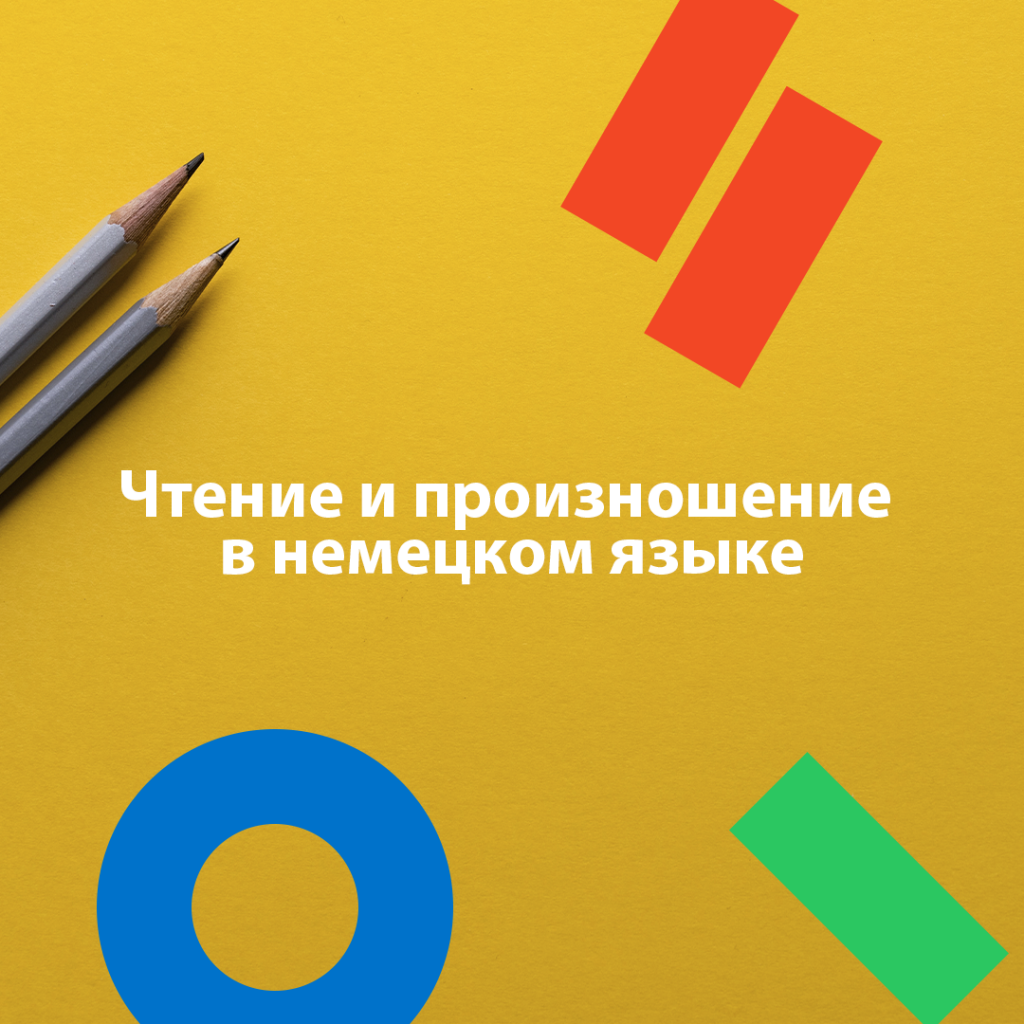To be able to correctly read in German is the basis of the basics. Here we will discuss the rules of reading and pronunciation in German, which may be difficult. Many read German words as they would read English, but this is not always true.
Consonants
S reads as [s] before vowels: Sonne [zone] – the sun, sehen [zeen] – see;
Before the letters T and P at the beginning of the word, we get the sound [br]: Steuer [Stouier] – tax / steering, Sport [shport] – sport;
In other cases, we read [s]: uns [uns] – us / us;
Z [cit] is always pronounced [t], not [s]. Even in borrowed words: Zebra [zebra] – zebra;
H [ha] – Hemd [hemd];
In English, H can be read as [r], but in German it is [x]. Although Hamburg we call it Hamburg, and not Hamburg.
R [er] causes the most difficulty for learners. Sometimes it is a rolling sound like in Russian, in the middle of the root you need to lisp, and in the end it is usually swallowed (replaced by a short [a]). For example, at the beginning of the word and after the vowels, which are stressed, R read clearly.
Y [upsilon] is something between [yu] and [y] (but closer to [y]): Physik [fyuzik].
V [fau] is an unusual letter for beginners and those who are accustomed to English, after all, it is [f] and not [c]: Vater [Vater] is the father.
Therefore, many foreign names of their own are written differently than in other languages with Latin letters, for example, not Kiev, but Kiew.
ß [cc] is called the “escet”: Straße [strässe] – street. When reading, doubling [c] is almost imperceptible.
Vowels
Ä [e] (a-umlaut) – Ästhetik [aesthetic];
Ö transmits a sound that can not be displayed in Russian letters. She is the closest to the letter ё, as it sounds in the name of Goethe.
Ü looks like a soft [y], for example, like [Yu] in “love.”
Interesting to know!
German alphabet is based on Latin. It is composed of 26 main letters, 3 umlauts, as well as an “escet” (this is a ligature ß). Historically, the alphabet is based on a runic letter used by the ancient inhabitants of the territory. From the middle of the 18th century began the transition to the usual Latinized form. Togo was demanded by the need to create a unified version of writing appropriate for all territories of states.
Matching consonant letters
The letter combination “sch” is always read as [br], it is the equivalent of English “sh”: Schritt [shrit] is a step;
We add one letter to this letter combination and get “tsch” – [h]: Deutschland [Deutschland], Borschtsch (w + h = sch + tsch) – borsch.
“Ch” [x]: Nacht [naht] – night;
“Chs” [kc]: sechs [zack] – six;
“Ck” [to]: wecken [veken] – wake up.
qu [q]: Quark [quark] – cottage cheese. This letter combination is the only place where you can find the letter Q.
Letters of vowels
“Ei” reads [ah]. The most vivid example: das Ei [das Ay] is an egg. It would seem that everyone understands this, but for some reason Albert Einstein [Albert Einstein] is called Einstein here.
“Ie” is a long [i]: das Lied [das liid] – song.
“Eu” and “äu” are not at all [eu] or [hey], but [oops]. A prime example is Sigmund Freud, who, in fact, is Freud.
The letter “H” lengthens the vowel before it:
ah [a:] – nah [to:];
eh [e:] – gehen [ge: en];
oh [o:] – Lohn [lo: n];
uh [y:] – Uhr [y: p].
Escet
The letter “ß” (escet) is no longer used in any language of the world. It replaces the letter combination “ss”. Now it is used less and less. The Swiss have not used it for many decades.
After a short vowel stands “ss”: Fluss – the river, Russland – Russia.
After the long vowels the “ß” stands: groß is big. If you can correctly pronounce this word to yourself, then you will understand that “o” is quite long here.
After diphthongs (when one sound means two vowels), it is always “ß”. The coolest example of this is the verb “wissen” – “to know,” but we say: “ich weiß” because the vowel “i” turns into a combination of the letters “ei” (ai).
And there is still no capital “ß”, when you write an angry comment on CapsLock, write “SS”: “DU BIST EINE GROSSE SC * EISSE” (although the word “groß” and the word “Scheiße” are written with “ß” ) – “YOU ARE A HUGE ******”.
Total
The best way to learn the rules of reading in German is to immediately memorize the correct pronunciation of a word. It is best to speak it out loud several times. As in any other business, skill is needed here. It is necessary to read and speak more and then the skill is quickly automated. Good luck!

